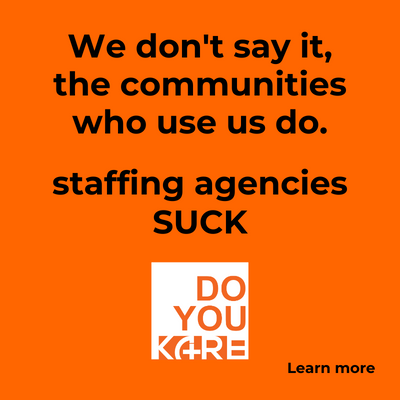An edited version of a Senior Housing Forum podcast interview with dementia care expert Nancy Schier Anzelmo.
By Pam McDonald
[The following is an edited version of a Senior Housing Forum podcast interview with dementia care expert Nancy Schier Anzelmo, conducted by Pam McDonald, podcast producer and co-host.]
PAM: I’m talking today with my colleague Nancy Schier Anzelmo, who is senior living’s go-to resource for dementia care, and principal in the consulting firm, Alzheimer’s Care Associates. She’s also a gerontologist, college faculty member, and highly regarded speaker and trainer. Throughout her 25-year career, Nancy has advocated for transforming institutional cultures into resident-focused care.
Hi Nancy. Thanks for being here today. I’ve heard you say that when you’re evaluating communities’ dementia care programs, you can trace any less than stellar performance back to staff not knowing the residents as individuals. What do you mean by that exactly?
NANCY: Well, the fact is that residents come in as blank slates and staff often see them as their diagnosis. They don’t see them as the amazing people they were before, all of the history, their family, and their life story.
That phrase “life story” is really important because everyone has their idiosyncrasies and if we don’t know that about someone who cannot communicate themselves, then we just say they’re being disruptive, they have disruptive behaviors, or whatever. The fact is, they’re not; they’re trying to communicate. So, every single behavior is usually a way to communicate. But we don’t read it right unless we know the story of that person.
For example, if staff didn’t know that I’m a night owl, I really wake up around 10 o’clock and get my best work done every night between 10 and 12, then they could consider me noncompliant for not going to bed at eight o’clock. And they know nothing about my life story . . . that that has been my productive time for my entire life.
I like to say if staff knows at least a minimum of five things about a resident, not just if they like orange juice or not, but five important things about them as a person, then they can do better care. And more than that, they can see them as who they truly are, as an individual instead of a person in Room 220. They see them as a real live, whole person with a life of experience.
But when providers leave that off or put it in a file and stick it in the desk and no one sees it but the Activity Director, Program Director, or whoever, then our staff don’t stand a chance at doing better care.
PAM: You said staff should know five important things about each resident. What kind of things do you consider important?
NANCY: The essence of the person comes from the family. “Tell me about your mother. What is she like? What was it like growing up?” Just like you and I have talked about, right? So, I’m talking about the essence of the person.
I use the words “recipe card” because it’s the key ingredients of what makes you special as a person. Staff can carry this information on index cards they keep with them. Those simple things that are so important to know: if you are a morning person or an evening person. If you have coffee or tea that starts your whole day off right. Or, when do you normally like to bathe, AM or PM? That’s a life pattern usually and knowing those things about each individual is what makes person-centered care real. But many times, that information is not shared. So, we don’t set up our staff for successful encounters with these individuals.
We set them up to just go over the surface. They’re really not digging deeper into who that person is. Once the staff has the ability to solve that problem – look at the person as they truly are – they’re so empowered to know, wow, I realize that person was a writer, that’s why I need to have programs that would keep them engaged in their life patterns. What they enjoyed and not something they’ve never done before.
So, it’s important with individuals living with dementia that we know them as best we can. That’s the partnership with the family because they’re entrusting them to us to take care of and we can’t do that without knowing the true person.

PAM: Do you mean to imply that without staff knowing five essential things about each resident, they’re not providing person-centered care?
NANCY: So, person-center care means everyone from the executive director to the housekeeper to the line staff to the cook, whomever, they all need to know at least five key ingredients of that person – at minimum. Typically, it’s many more than that to make up a unique individual with a lifetime of history.
But at least knowing some of the key things about them and not surface things. Digging deeper, what is it that makes that person get up in the morning? What are their biggest joys in life? Do they need to be outside every day? You know, what is it about that person that we need to honor and respect when we begin to care for them and help them on this journey of dementia?
PAM: So, all staff knowing each resident is the baseline. What else constitutes person-centered care?
NANCY: It’s really having a relationship and, as I said, knowing the person upfront before they cross your threshold. And having a partnership with the family because they’re the ones that give you the insight on those key ingredients, on that recipe of that human being.
Having the ability to be creative and find ways to bring joy and purpose to that person’s life every day, that’s really what we’re doing – along with all the ADLs, the care, the food, and everything else. But knowing that.
So, for instance, I was in a community recently where they couldn’t get a vegetarian item for a woman who was a vegetarian her whole life. They were serving her chicken. When I asked why she was getting chicken they said, “Well, she doesn’t really like it, but she’s eating it now.”
And I said, “Do you realize we’re not respecting . . . they didn’t know . . . we’re not respecting that person and who they were their entire life as a vegetarian and now we’re serving them chicken.” That’s just ethically wrong as far as I’m concerned. So, knowing that information upfront is what we have to do. That dear woman was losing weight. She wasn’t engaging. I mean, honestly, that’s pretty important, right?
I think that is where, as providers, we need to take time to get to know each individual. The families want to share who their parent, a spouse, a sibling, or whoever it is, was and is. They still are. And it’s our job to delve deeper with the family to get as much information as possible upfront so we can help with the adjustment period. And then going forward, so we can help create a service plan, a care plan for them that keeps them engaged and purposeful as a human being.
PAM: You’re not just talking about care, are you?
NANCY: It’s more about activity, meaning engagement, than care. We can all do that care. We’ve got that down for decades. But engaging a person, bringing life and spark and joy to them, is part of that care plan as far as I’m concerned. That’s service. Finding a few times each week that we do those things or every day. Whatever we can do that brings that person joy.
Maybe for me, it’s bringing me a latte. That brings me joy, so, perhaps that’s it. Or taking me outside because I love to be outside. We just have to really dive a little bit deeper and not do what’s on the surface anymore. We have to have engaging programs that make them feel that they’re giving back — that they are useful to society, that they are making a difference. This is all important and you can’t do that without knowing their life story.
You can listen to the full podcast by clicking the button below:









